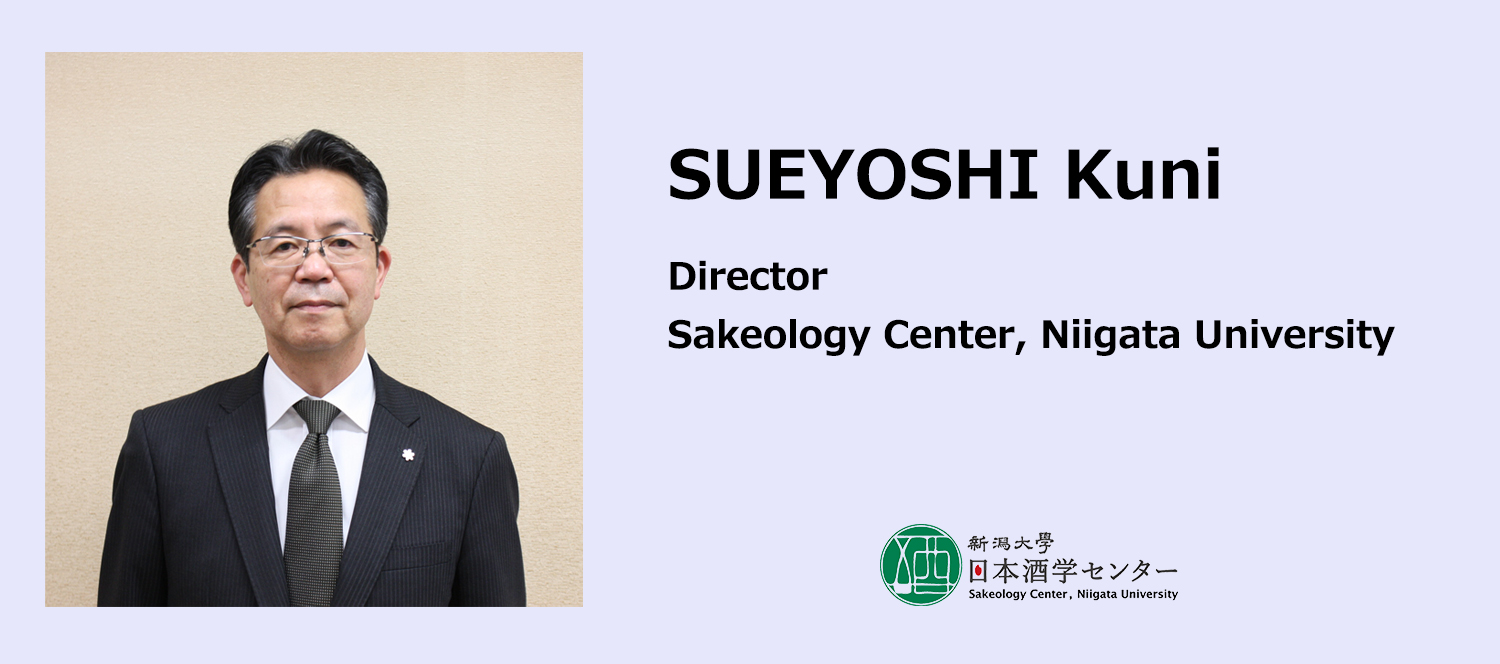“Traditional knowledge and skills of sake-making with koji mold in Japan” as UNESCO Intangible Cultural Heritage

On December 5, 2024, “Traditional knowledge and skills of sake-making with koji mold in Japan” was added to the UNESCO Representative List of the Intangible Cultural Heritage of Humanity.
The traditional knowledge and skills of sake-making with koji mold in Japan have been developed depending on the climates and environment of the respective region in Japan and passed down over generations, producing sake, shochu, awamori, mirin, etc.
This addition is the result of the long-term efforts of many people, including those involved in sake brewing throughout Japan, and we, Sakeology Center, Niigata University, would like to express our heartfelt congratulations to them.
The Sakeolofy Center was established in April 2018, and this year marks its seventh year, with the aim of constructing Sakeology as the world’s first academic discipline covering a broad variety of cultural and scientific fields related to sake, and aspiring to become an international hub of Sakeology. Faculty members and experts from various educational and research fields participate in this initiative and engage in education, research, information dissemination, and international exchange related to sake.
In the field of education, in particular, we offer Interdisciplinary Study that takes advantage of Niigata University’s strengths as a comprehensive university, and Self-motivated Problem-solving Study that incorporates practical training and seminars at breweries, etc.
For undergraduate students, Sakeology Lectures such as “Sakeology A (Introduction),” “Sakeology B (Practical),” and “Sakeology C (Practical examples of research)” are offered as liberal arts program. Through them, students can have a broad perspective that goes beyond conventional brewing and fermentation studies, and can acquire knowledge and education about sake, a traditional Japanese culture, by learning about it from multiple angles. In addition, in collaboration with Kagoshima University and the University of Yamanashi, the new lecture, Sakeology D, which covers not only Sakeology but also the Shochu and fermentation studies and Enology, is being prepared to be offered in 2025.
Furthermore, the master’s program of the Graduate School Sakeology Program has commenced in April 2022 and a doctoral program in April 2023 at the Graduate School of Modern Society and Culture and the Graduate School of Science and Technology. The center imparts education and conducts research that integrates specialized domains in the humanities and sciences with a focus on the subject of sake, thereby adopting content that provides a bird’s eye view of diverse fields, which ranges from raw materials and production to the sale and consumption of sake as well as culture, history, tradition, and health in addition to the student’s areas of specialization. For practical training, the program offers laboratory-level sake brewing as well as hands-on training to learn and experience the sake brewing process at the Niigata Prefectural Sake Research Institute. In March 2024, seven graduate students, the first generation students of the master’s program of the Sakeology Program, completed the program.
The Sakeology Center will continue to enhance our activities.
The addition of “Traditional knowledge and skills of sake-making with koji mold in Japan” to the UNESCO Representative List of the Intangible Cultural Heritage of Humanity is a precious opportunity for people worldwide to learn about and become interested in sake. The Sakeology Center, Niigata University will contribute to the development of Sakeology by strengthening and promoting education and research activities from the standpoint of academia, and will make further efforts to foster the next generation of international human resources who will pass down Japanese culture.
We look forward to welcoming you to Niigata University to learn about “Sakeology,” the world’s first academic discipline, and “Traditional knowledge and skills of sake-making with koji mold in Japan,” the Intangible Cultural Heritage.
SUEYOSHI Kuni
Director of Sakeology Center, Niigata University
December 5, 2024

